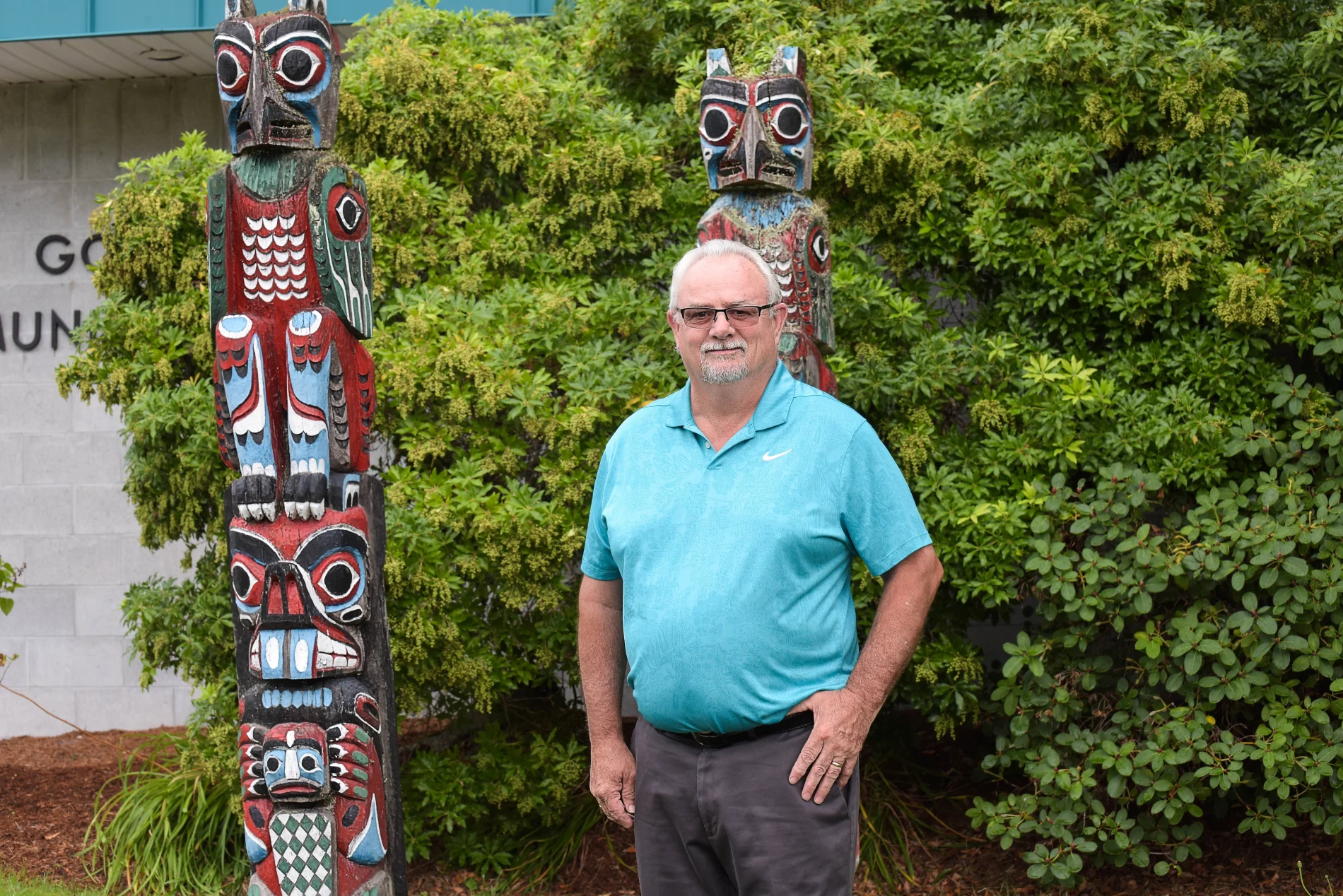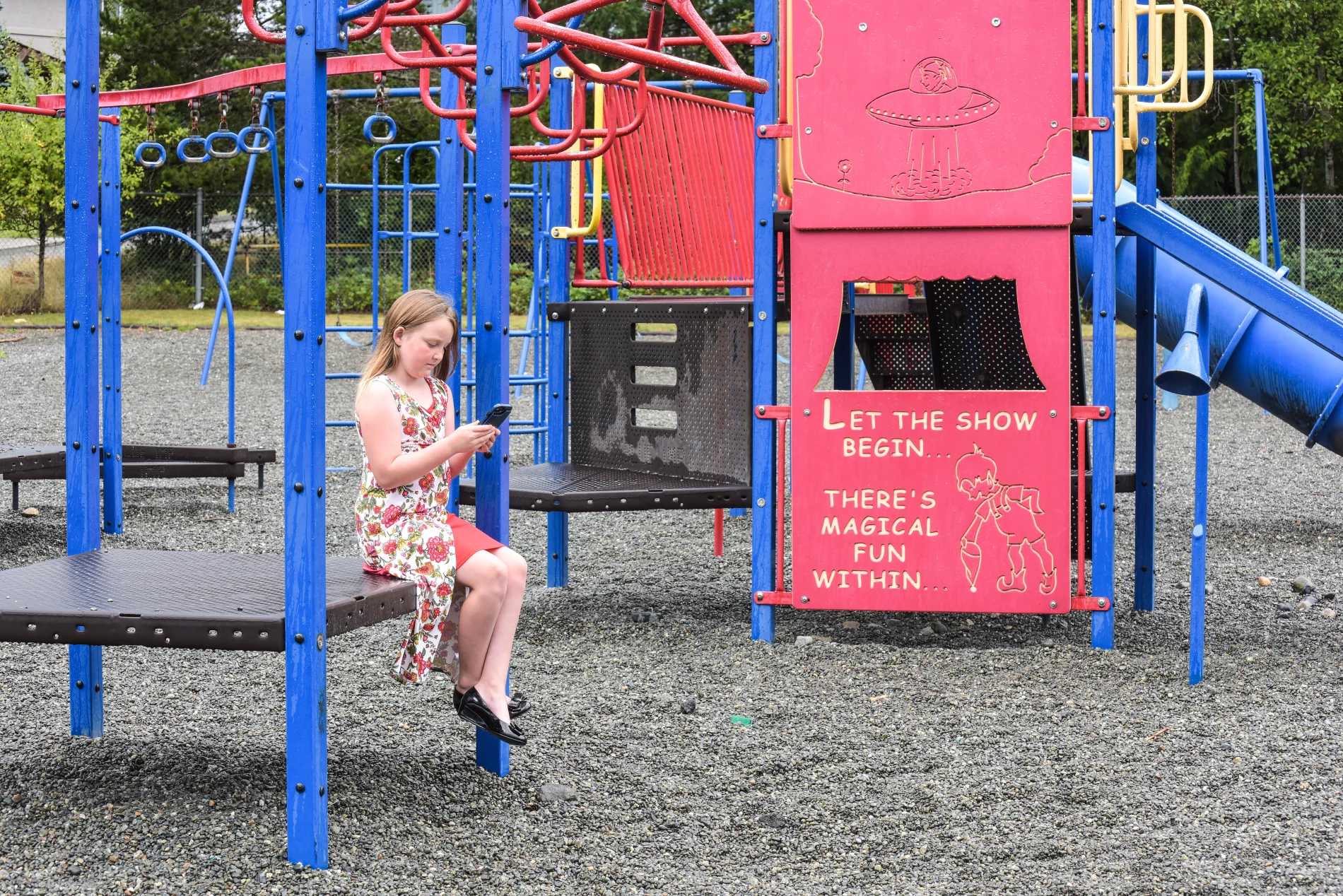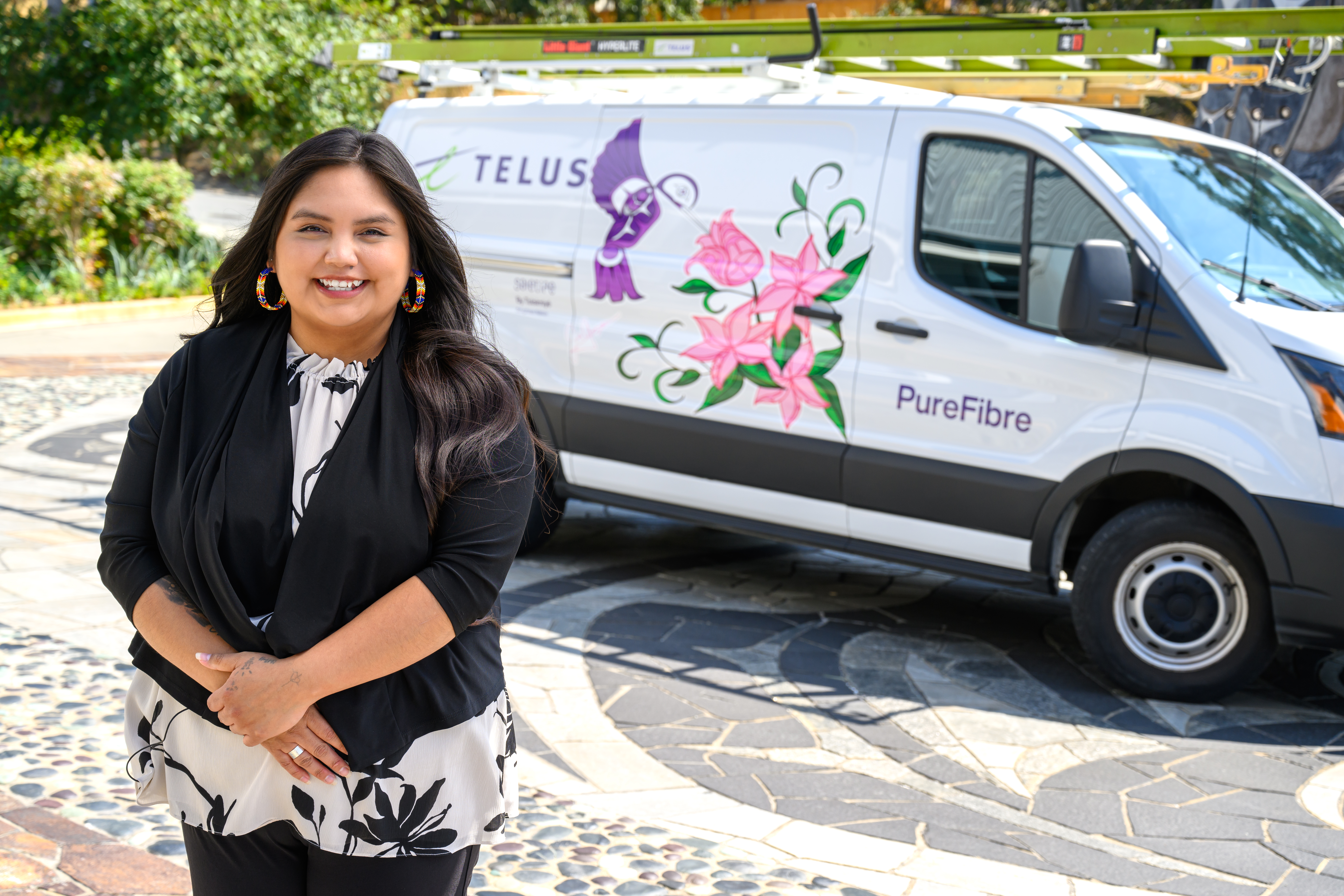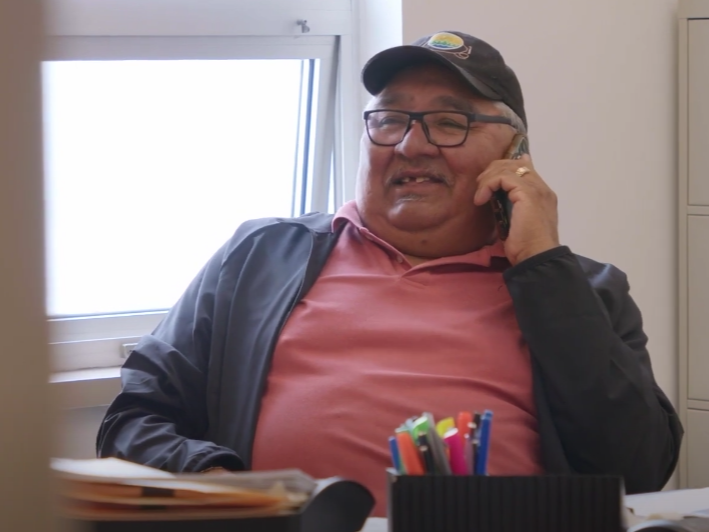
Connecting Canada
In life’s critical moments, a phone call can make all the difference
May 26, 2021
In a mountainous region where the nearest hospital is 89 kilometres away, wireless connectivity within Gold River will help save lives. Later this year, the small town is slated to be among the 187 additional communities across British Columbia to join the growing TELUS 5G network. PHOTO COURTESY OF TELUS
Gold River Mayor Brad Unger knows exactly how important connection can be, especially when you’re all alone and badly injured.
In the winter of 2013, a slip outside his car on a harrowing stretch of mountainous highway on the outskirts of his small community on the western edge of Vancouver Island left Unger bleeding from three crushed temporal arteries.
Worse, with no cell service to the area, Unger had no way to call for help. Luckily, the fates were with him that day.
“When you live through an accident like that, you sit back and you think, ‘You know, it’s very fortunate another car was right behind me. It might have been a very different story,’” he recalls, adding he still bears the scars from 120 stitches to the head.

Gold River Mayor Brad Unger, pictured, says network access will help both his town and neighbouring community of Tahsis grow their reputation as global eco-tourism centres as British Columbians look beyond the coronavirus pandemic. PHOTOGRAPHY BY JOANNE HEPBURN
It’s critical moments like this that propelled Unger’s tireless support of a plan to connect Gold River, and its 1,500 residents, to the TELUS wireless network.
The ease of contacting family, friends, employers or work colleagues, wherever you may be, is undoubtedly vital in this all-connected age -- a reality that has only grown in importance since the onset of the coronavirus.
But in a remote region, where the nearest hospital is 89 kilometres away, Unger knows from painful experience that reliable network connectivity will help save lives.
“It’s all about safety,” he says.
Critical milestone
Network access in Gold River has come a long way since Unger’s accident. Today, there’s a new cell tower in town making it possible for residents to easily and reliably connect with each other and the world. And, later this year, Gold River is slated to be among the 187 additional communities across the province to join the growing
TELUS 5G
network. The neighbouring town of Tahsis, with a full-time population of 300, has also received a new cell tower from TELUS.
The investments build on the $53 billion TELUS has spent since 2000 to support economic growth in rural and urban communities across the province, and enable British Columbians to work, learn, access healthcare, and connect online from wherever they call home.
The tech company will invest another $13 billion in capital and operations in BC through to 2024, a commitment that is expected to generate 12,000 job opportunities primarily in construction, engineering and emerging technologies. The funding will also bring 5G to 119 First Nations communities and 335 Indigenous lands, which include Reserves, treaty-lands and self-governing lands across the province utilizing its current spectrum holdings.
In addition, hundreds of thousands more homes and businesses will be connected to the gigabit-enabled
TELUS PureFibre
network. Strong digital policy is missing from Canada’s climate strategy, and presents an opportunity to lead on global climate action.
Building business
The timing of the network investments couldn’t be better. Public health measures enacted to limit the spread of the coronavirus over the last year have meant even small towns such Gold River and Tahsis are feeling the pressures of social distancing. In particular, improved connectivity has better enabled local children to stay connected to teachers and friends when schools were closed, and for older residents to stay in contact with loved ones while safely staying home.
“It’s been so much easier to communicate with each other,” says Mayor Unger.

Improved connectivity enabled local children in Gold River and Tahsis to stay connected to teachers and friends when public health measures closed schools during the early months of the pandemic. PHOTOGRAPHY BY JOANNE HEPBURN
Businesses, too, are looking forward to better times ahead after challenging months of closures and travel restrictions put in place to limit the spread of the coronavirus.
In a region where 75 per cent of the economy is dependent on tourism, wireless connectivity is a modern must-have as visitors increasingly rely on smartphones to access maps, find accommodation and restaurants, and book tours and services with local operators.
Even among residents of Tahsis, a two-hour drive from the nearest urban centre, much of the journey over gravel roads, there is a greater sense of ease.
“Safety can be a real issue if there’s a serious health emergency here because of our remoteness and the fact that we have very unsettled weather systems for a good chunk of a year,” says Martin Davis, Tahsis mayor.
Now, along with landlines and other traditional methods locals have relied on to look after each other, instant communication over a smartphone can alert neighbours to a potential problem -- whether that’s a bear rambling through a nearby yard or the location of a dangerous patch of black ice on the roads in the winter months.
Critically, residents can also now easily access tools such as
TELUS Health MyCare™
, a free downloadable app that enables British Columbians to have one-on-one virtual consultations with a B.C.-licensed physician at the touch of their phones. The virtual appointments are covered by MSP and can happen in a matter of minutes, with prescriptions sent to and directly filled by a local pharmacist. Wireless connectivity means the town’s senior residents can also access the LivingWell Companion
, a medical-alert service that can be used in the home or outdoors.Gold River will also soon benefit from groundbreaking advancements in virtual health and education. With
5G
, delivering speeds up 100 times faster in the future and virtually eliminating delays, residents will be able to tap cutting-edge technologies, including augmented and virtual reality tools, unfettered and secure video conferencing, and access the same top-notch doctors and specialists available to those in urban centres through remote surgery and medical monitoring.Looking forward, both mayors see a fresh opportunity to draw more families and entrepreneurs out to their communities for more than just a visit. And that may be the best outcome of all.
Reliable network connection -- combined with affordable housing prices, virtually no crime, and near-endless outdoor access -- adds one more good reason for someone looking for a change of pace to make the region home.
“It’s becoming more and more possible for people to work remotely,” says Davis. “It will be good for our community’s resilience in the long run.”

Help protect the environment
Better digital policies will support our collective journey to net-zero.
Get informed


